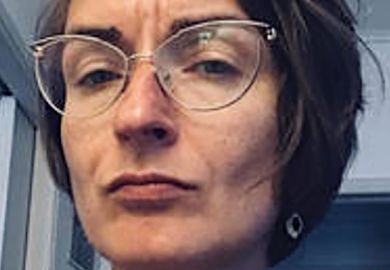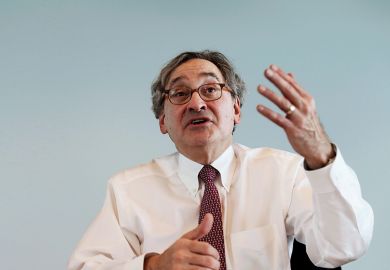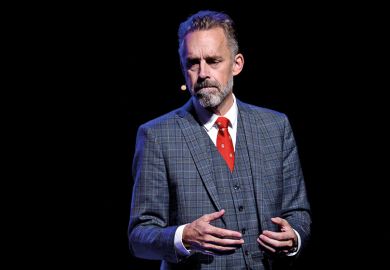The Canadian Association of University Teachers (CAUT) has imposed its first censure in more than a decade, urging a boycott of the University of Toronto for allegedly rejecting an academic over her criticisms of Israel.
Toronto’s retreat from hiring Valentina Azarova last year “was politically motivated, and as such constitutes a serious breach of widely recognised principles of academic freedom”, CAUT’s executive director, David Robinson, said in announcing the decision.
CAUT represents 72,000 academic professionals at 125 universities and colleges in Canada, and its censure determination means they should not accept any appointments or speaking engagements at Toronto until the university makes necessary changes.
The university’s president, Meric Gertler, characterised CAUT’s action as an added insult to the work of Thomas Cromwell, a former Canadian Supreme Court justice who investigated the Azarova case at Toronto’s request.
Justice Cromwell affirmed that another Canadian judge, David Spiro, tried to use his status as a Toronto alumnus and major financial donor to block Dr Azarova’s hiring, but he concluded that Judge Spiro’s involvement was not the deciding factor for Toronto abandoning Dr Azarova.
“I think people are doing his work a disservice,” Professor Gertler told Times Higher Education, referring to Justice Cromwell. The 78-page Cromwell investigation was “a very comprehensive fact-finding process”, Professor Gertler said.
But CAUT’s governing council, in voting for censure, sided with a number of Toronto faculty – including several involved in the candidate search and recommendation to hire Dr Azarova – who flatly rejected the notion that Judge Spiro had no influence.
“In a close examination of the facts of the case, CAUT council found it implausible to conclude that the donor’s call did not trigger the subsequent actions resulting in the sudden termination of the hiring process,” Mr Robinson said in the announcement.
Dr Azarova is an international law practitioner and researcher at the University of Manchester who last August was the unanimous top choice of a search panel of Toronto’s Faculty of Law to become director of its international human rights programme.
But within days of the panel’s decision, Judge Spiro – a 1987 Toronto law school graduate who was appointed to the Tax Court of Canada in 2019 and comes from a family that has given tens of millions of dollars to the university and its hospitals – told a university fund-raising official of his concern.
Dr Azarova has written critically of Israel’s treatment of the Palestinian people, and Toronto faculty involved in the case said that Judge Spiro was aiming to warn the dean at the time, Edward Iacobucci, of his concern about her politics.
The law school then pulled back the job offer to Dr Azarova, and Professor Iacobucci publicly attributed the decision to immigration-related complications. The Cromwell report endorsed that explanation, and Professor Gertler called Justice Cromwell a man of public honour “as high as it gets” whose findings should be respected.
Professor Gertler noted that the Cromwell report did contain some criticisms of the university, leading to new guidelines for the behaviour of its fundraising professionals “as to what they should do or how they should respond if they find themselves in a situation like this in the future”.
Professor Iacobucci also stepped down as dean, as had been planned prior to the controversy, and the Canadian Judicial Council has opened an investigation of Judge Spiro and the question of whether he can be considered impartial.
But overall, Professor Gertler said, criticism of the Cromwell report within Toronto’s law school was confined to a “small number of quite vocal colleagues”.
Yet law professors on both sides of the question of the credibility of the Cromwell report agreed that either way, the university had a serious problem if internal hiring information was reaching donors with an interest in imposing a political agenda.
One of them, Michael Trebilcock, said he accepted the Cromwell findings but found the Spiro call “inappropriate” and a matter deserving further investigation. Another, Trudo Lemmens, who quit the faculty advisory committee after Dr Azarova was rejected, said the university administration “should take this censure very seriously”.
Professor Gertler, however, said that Toronto – with a C$2.5 billion (£1.4 billion) endowment, by far the largest in Canada – has had no major problems with donor interference and maintains “very strong protections” against it.
“We have never had, to my knowledge, a similar event such as this,” he said. “And that just underscores how rare this is.”
Beyond calling on Toronto to reinstate the job offer to Dr Azarova, CAUT did not identify what conditions Toronto would need to satisfy to end the condition of censure, the first imposed by the association since 2008. That previous case, involving governance violations at First Nations University, was CAUT’s first use of the penalty in 30 years.
Professor Gertler said he looked forward to discussing the matter with CAUT, but also expressed confidence it would create no major problems for the university. “I think that we will carry on with business as usual,” he said.
Register to continue
Why register?
- Registration is free and only takes a moment
- Once registered, you can read 3 articles a month
- Sign up for our newsletter
Subscribe
Or subscribe for unlimited access to:
- Unlimited access to news, views, insights & reviews
- Digital editions
- Digital access to THE’s university and college rankings analysis
Already registered or a current subscriber?








